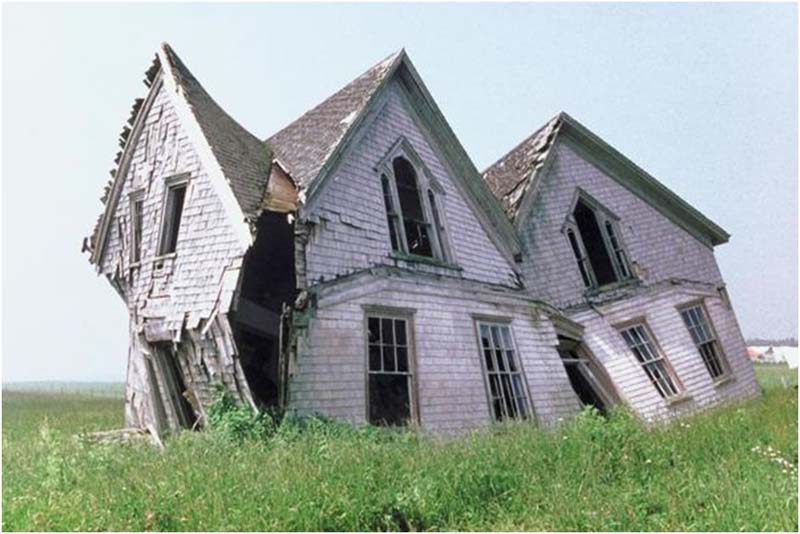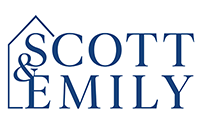
What’s The Deal With Community Housing?
The other day I received a call from my good friend John, as always at the most erratic of times. This time it woke me out of a blissfully deep sleep, at 6:52 in the freakin’ am. Before I could even say hello I heard that unmistakeable voice – “What’s the deal with this community housing??”
John is what you might call a serial entrepreneur. Rotund and sweaty, he is like Mark Ruffalo gone to seed, if those seeds were then planted and grew marijuana. He is always scheming and dreaming up ways to make his millions. He had 3 or 4 paper routes in grade school, sold bootleg CD’s out of his locker in middle school, and illegal satellite dish cards in high school. When the NHL team returned to Winnipeg a few years ago John somehow got his hands on hundreds of tickets for the home opener and sold them on the internet for a huge profit. This is his thing, and he’s good at it. But when it comes to John and real estate, forget about it.
John is the worst kind of buyer client there is – the combination deal seeker and tire kicker. If he wasn’t my friend I would have stopped taking his calls years ago, but since that isn’t an option I have been able to find ample amusement in his fruitless plight. John is the kind of guy who always thinks a big market correction is right around the corner, even in the absence of any kind of substantive info to support it. I am not joking when I say that the house he could have bought for $500k when he started his search now costs $750k. He is also obsessed with the idea of buying a property in a prime location (he thumbs his nose at the idea of even looking in Scarborough) at “well below market value”, even though this is impossible. He is forever asking about getting an inside track on a bank foreclosure, or a cash-strapped church that can be purchased for a song and converted into a loft. It never ends, and now his latest brain wave was to focus on the Toronto Community Housing sales. If there was ever a deal to be found it was here, he had convinced himself, and of course he was wrong again. There are NO deals on freehold properties in this current seller’s market, and the community houses are no exception.
First some background on the Toronto Community Housing sales. The TCHC is cash strapped to say the least, and to help offset the $2.6 billion it requires to repair its rent assisted complexes it is selling off approximately 125 houses across the city. A lot of these properties are in prime locations (you would be surprised by some of the addresses), and range in condition from “run down” to downright dilapidated. The city has hired various realtors to handle the sales, but each property has followed the same process – 10 to 14 day marketing period, public open houses and then interested buyers (or their realtor) must submit the offer in person in a sealed envelope directly to the TCHC office at 931 Yonge St. The city then requests 5 days to review all offers.
There has been some bad press about the way the city has gone about selling off the houses, and that’s what John (who reads everything he can about the Toronto real estate market) hung his hat on. As I mentioned earlier the TCHC is cash strapped, and selling 125 properties adds up to a fortune in real estate commissions. A standard real estate commission when you have something to sell is 5% plus HST. Half of the 5% goes to the agent that brings the buyer, and the other half goes to the agent that handles the sale. It is a bad idea to cut the 2.5% for the buyer side, as many agents don’t do a lot of volume and need every penny they get, so if a property offers less than 2.5% they simply won’t take their buyers through. That leaves the 2.5% on the selling side, and this is where the city brought out the knives. In some cases they offered the same agent more than 25 properties to sell, and it was clear it was at far less than standard commission. There have been rumours that agents offered a flat fee, and some people have speculated that it was for as low as $1000!
So if an agent is making as little as $1000 to sell a property, what kind of marketing are they going to provide? Probably none, for the simple reason they can’t afford to. Consequently a lot of properties were just slapped on MLS (often with no photos) and showed terribly. I went through a few of them and they were disgusting, to put it mildly. I kept waiting to come across the chalk body outline. As a result some people are of the belief that certain properties ended up selling for less than they should have and money was left on the table. This may be true to a small extent, but to me it is akin to buying a Picasso painting for $12.6 million when it was expected to sell for $12.8 million.
Here are just a few of the community housing sales to consider, and keep in mind all were essentially gut renos.
- Detached 2 ½ storey with 1 parking space on Dingwall Ave – listed for $815,000 and sold for $1,062,000.
130% of list price is a screaming deal in my books.
- 3 bedroom row / townhouse on Wardell Ave with 1 bed and no parking – listed for $475,000 and sold for $631,800, or 133% of the asking price.
- Detached 2 ½ storey with 1 parking space and unfinished basement right on Dundas Ave – listed for $499,000 and sold for $591,450, or 119% of the asking price.
I could go on listing these sales but I don’t really need to. It is worth noting that sales 2 and 3 were both double ended by the listing agents, who also managed to double end an incredibly high percentage of the properties they listed for the city. Remember earlier when I mentioned the bidding process and how it involved submitting offers in sealed envelopes?? To me this stinks to high heaven.
And then there was the property on Dagmar Ave, which didn’t receive its asking price on the offer date. Finally the vultures could swoop in! Except the brokerage remarks were swiftly revised after the failed offer date, and actually included the following line, “City Will Not Accept Below Listing Price.” If you can’t secure a property for less than the asking price it is the definition of a non-deal, and this listing was simply pulled and brought back out at a later date.
Once again John had encountered a hard lesson in economics. A Big Mac costs what it costs, a bottle of Dom Perignon costs what it costs, and that community housing semi on Coady Ave costs what it costs, which is a lot. There may be a day when that is no longer the case, and I know at least one person who is willing to wait. I just hope he doesn’t call me so damn early in the day next time.
